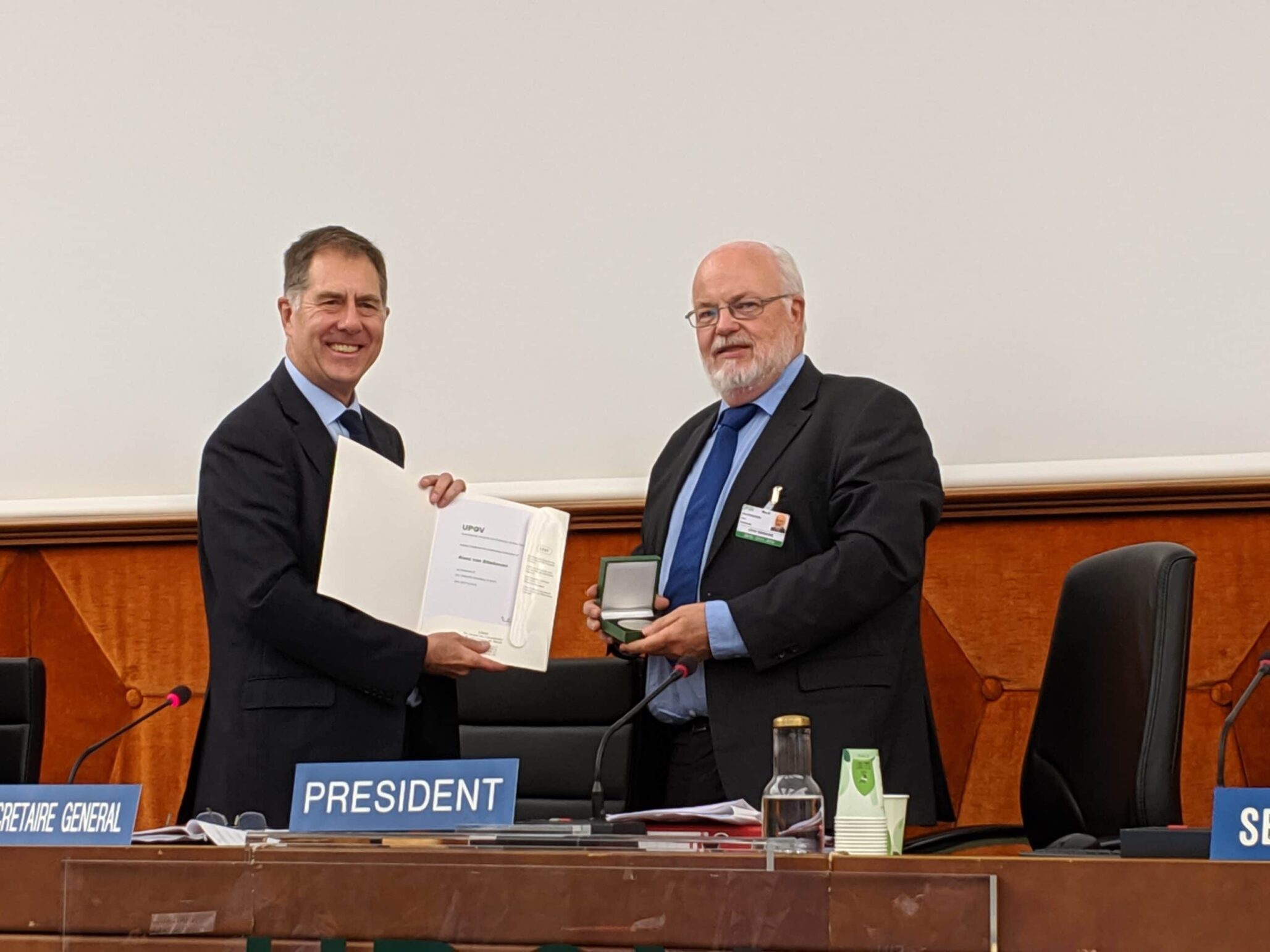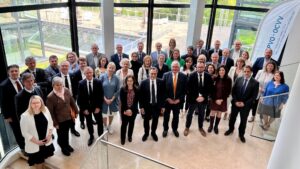The Netherlands is well known for its water management. As roughly 55% of the country lies below the present sea level, keeping dry feet has always been a challenge. Already in the Middle Ages, dikes were built to protect the land against flooding of rivers and seas. Such pieces of land surrounded by dikes are the famous Dutch polders. These polders are the basis for the present Dutch society, not only the shape of the country is defined by these polders, but also the way we interact in the Netherlands is to a large extent based on the organisation around these polders.
In the Netherlands it was not a king, church, feudal lord or rich land owner who organised the maintenance of the dikes, but the totality of inhabitants, users and owners of the polder who jointly were responsible for the upkeep of the dikes, the clearing of the waterways and the construction of the windmills that kept the land surrounded by the dikes dry. In order to do that, people had to work together and realise that everybody — from the farmer that used the land in the polder, the landowner, to the inhabitant of houses in villages and towns in a polder — were equally responsible. If one part of the dike was not properly maintained, the whole polder could be flooded. So, people had to meet and agree on principles. Diverging interests had to be brought together and solutions had to be found. This way of living, discussing and working together even became a verb: “to polder”.
UPOV and the polder
When diverging interests sit around a table in the Netherlands, we are used to listen to each other, weigh arguments and look for middle ground and come to a joint compromise. No one is in a position to enforce his or her opinion on the others. We not only do this when governing our polders, but also discussions between employers and employees on wages and labour conditions are decided through a few rounds of ‘poldering’. Our government in towns, provinces and the central government is built on these principles, as rarely one party has the majority and coalitions have to be found.
If you live in a country that works that way, it is often hard to understand how systems work where the winner takes all and polarisation is the rule rather than seeking compromises.
The world of Plant Variety Rights is a good example of a system with little room for polders. The fierce opposition against Plant Variety Rights by a number of NGO’s is something the UPOV community finds difficult to handle. Both sides repeat their position. Everything ‘the other side’ puts on the table is considered as a confirmation of their horrible position. No real attempts are made to come together and see what the real issues are and how these can be tackled.
Such an exercise can only succeed if both sides are willing to look for common grounds. Define what is in common rather than what divides. The UPOV community should be prepared to acknowledge the importance of farmers, small and large for the maintenance of biodiversity in the world. NGO’s should be willing to acknowledge that farmers rights have limits and acknowledge that, when breeding institutes and breeding companies do not earn enough from their products, innovation will slow down dramatically, bringing farmers all over the world in a worse position than they are now. The seed industry should be brave enough to put the everyday practice that no Plant Variety Right (PVR) royalties are collected from small farmers on paper.
Sitting together and listening with an open mind can help in the discussion. Sometimes obstacles can be cleared when we take the time to carefully listen to each other. Synonyms and homonyms in discussions and legislation can only be discovered when there is an open exchange of views. A good example of this is the definition of a farmer. The farmers right to multiply and sell under certain conditions also protected varieties is one of the main obstacles for the Indian law to be considered as in conformity with the UPOV Convention. It was only after some time, when we really took the trouble to listen and learn, it became clear that the definition of farmer in India in the framework of this law was practically a synonym for the notion of private and non-commercial use in the UPOV Convention. By automatically applying one definition of farmer and not realizing that farmer is a homonym (the same word with different meanings), the divergence between the systems could live on.
Challenges
Is it possible to ‘polder’ UPOV into a system recognized by all?
The negative and even the neutral reaction is to say no. The UPOV Convention is not an instrument that can be changed easily. A full diplomatic conference is needed to do so and to get nearly 100 member state representatives behind this idea would be an enormous task.
Fortunately, there is a growing group of optimists that say, “yes we can achieve this, even without tampering with the UPOV Convention”. It is not realised enough that already today the UPOV Convention leaves a lot of room for interpretation. The founding fathers that created the first Convention nearly 60 years ago, already realized that when the aim is to bring together as many member states as possible in UPOV, there should remain room for interpretation.
A number of Explanatory Notes and Information documents has been developed to guide members in these interpretations. These do not have the same weight as the text of the Convention, but in practice, as the membership has accepted them, are equally important.
It is through such a system of ‘soft law’ that the polder can do its work. Reaching joint positions that can be presented as Explanatory Notes and Industry Standards, in practice will have the same effect as changing the Convention. It is evident that where multiple actors are involved, all bodies they represent should be willing to make comparable amendment in their position papers and Conventions.
As agricultural community we have an obligation to ensure a proper food supply in the coming decades. A growing population, shrinking surface of arable land, a healthy pressure on the use of fertilizers and crop protection measures and climate change put a strong pressure on farmers and breeders. The UPOV system plays an important role and if we screw up, convinced of our own right, the same society we all pledge to work for, will suffer.













